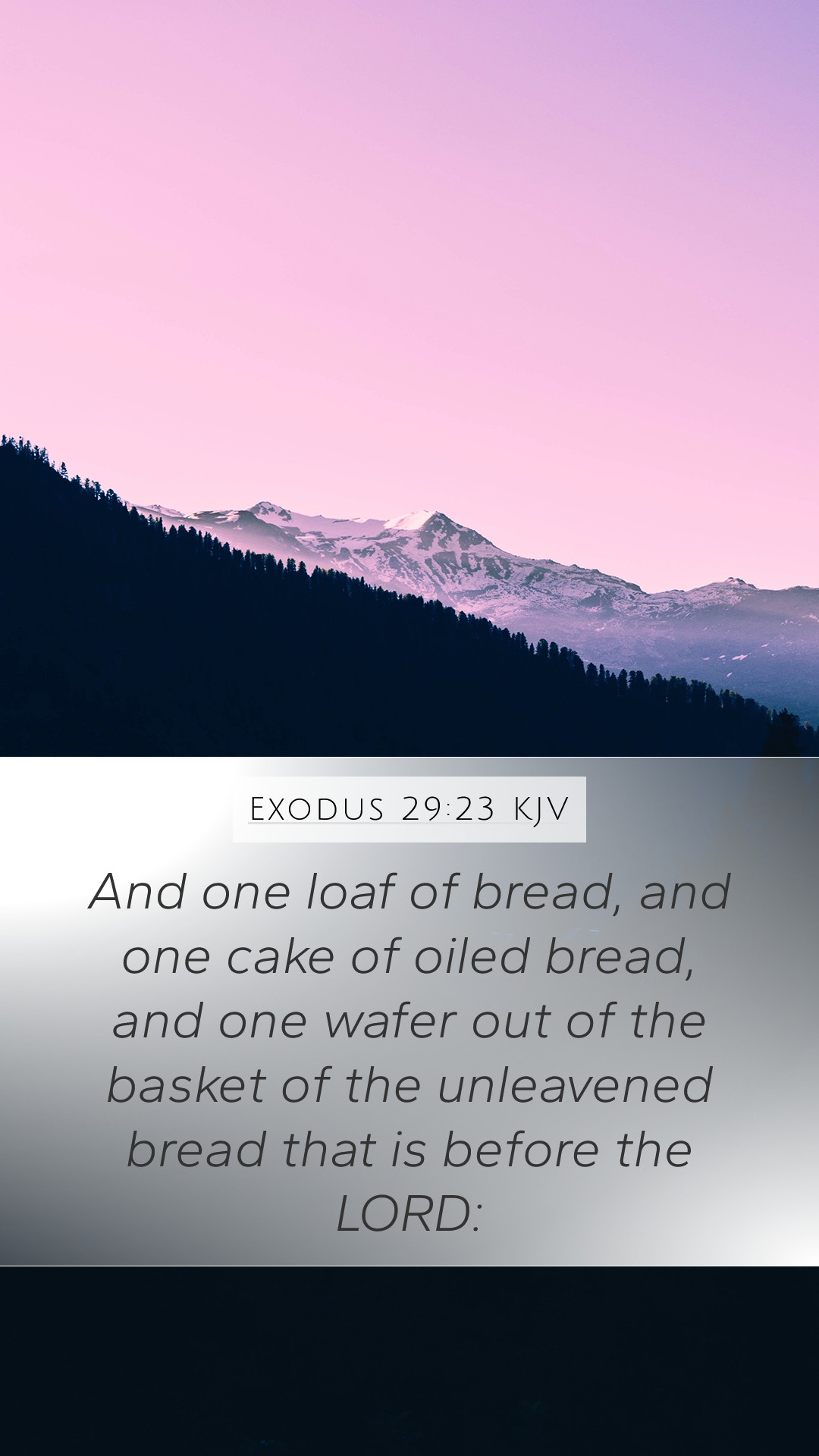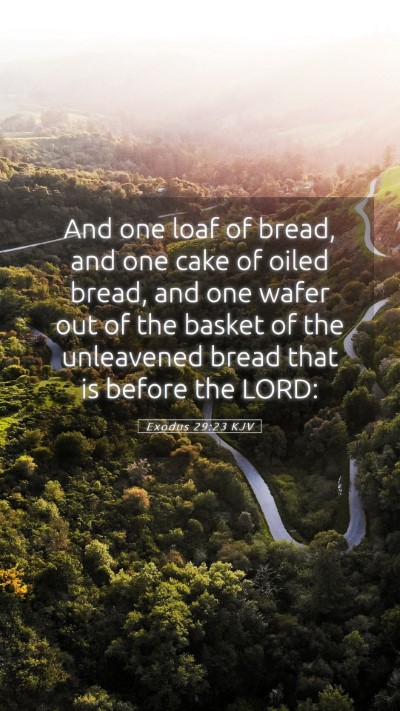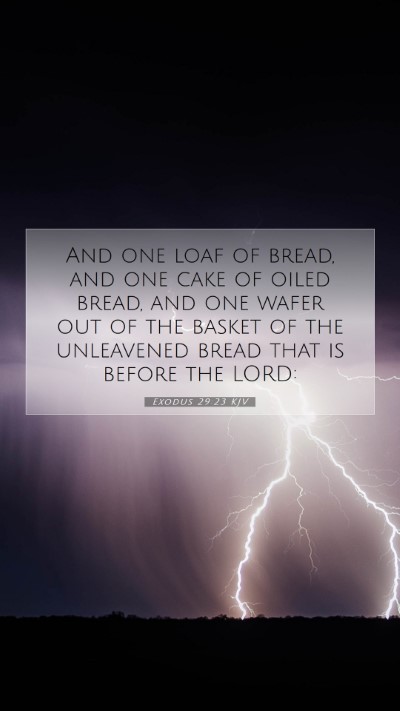Understanding Exodus 29:23 - A Comprehensive Bible Verse Commentary
Exodus 29:23 reads as follows: "And one loaf of bread, and one cake of oiled bread, and one wafer out of the basket of the unleavened bread that is before the LORD." This verse occurs within the context of the consecration of Aaron and his sons as priests.
This commentary aims to provide Bible verse meanings through insights drawn from the works of renowned public domain commentaries, including Matthew Henry, Albert Barnes, and Adam Clarke. Here, we explore the complexity behind this verse to deliver a thorough Bible verse explanation.
Contextual Background
The significance of Exodus 29:23 can be found within the larger context of Exodus 29, which details the procedures and rituals involved in consecrating the priests. The offerings described are critical as they symbolize the people’s dedication to God and the priestly role in mediating between God and the people.
Detailed Analysis
-
Matthew Henry's Commentary
Matthew Henry emphasizes that these offerings involve specific types of bread—loaf, oiled cakes, and wafers—to symbolize different aspects of worship and the holistic dedication to God. Each type of bread carries its own significance, presenting a fuller picture of offering oneself to God in various forms.
-
Albert Barnes' Commentary
Albert Barnes mentions that the use of bread in the offerings signifies sustenance and the provision of God. It heralds an acknowledgment of God's hand in supplying needs, and every type of bread points to an aspect of communion with the divine. This verse invites the believer to reflect on how sustenance relates both physically and spiritually in God's covenant.
-
Adam Clarke's Commentary
Adam Clarke discusses the cultural and ritual importance of unleavened bread in ancient Israel. He points out that bread symbolizes life and sustenance, and during the priestly consecration, it represents purity and sanctity, essential for those who would serve God. Clarke connects this with the broader tapestry of Jewish offerings and the meaning of holiness in service.
Theological Significance
The bread offerings serve as a type of communion between God and His priests, emphasizing Bible verse understanding in terms of the relationship dynamics in worship. The variety of offerings represents not only personal dedication but also communal participation in worship, reinforcing the idea that everyone has a role in honoring God.
Cross References
- Leviticus 2:4-5 - Discusses grain offerings, drawing parallels with the types of breads in Exodus 29:23.
- Numbers 18:12 - Highlights the offerings of the people that are given to the priests.
- Matthew 26:26 - Looks at the significance of bread in the New Testament, particularly at the Last Supper.
Application of the Verse
As we apply the insights gained from Exodus 29:23, we are prompted to consider what it means to offer ourselves to God today. The idea of various forms of offerings encourages a broader understanding of how to interpret Bible verses and apply them to our daily lives. Just as priests were dedicated in their service, believers today can find ways to dedicate themselves in worship and service to God through their actions and offerings.
Conclusion
Understanding Exodus 29:23 invites us into deeper Bible study insights where we can connect the Old Testament rituals with our spiritual lives today. Each element of the priest's offerings educates us on the nature of God and the importance of our relationship with Him. As we delve into Bible verse interpretations like this, we enhance our spiritual comprehension and ability to live out our faith in practical ways.
Engaging with this scripture through various Bible study resources allows us to continue our journey of faith. We can utilize online Bible study tools or join Bible study groups to further explore not just this verse, but also the rich traditions and meanings contained within Scripture.


